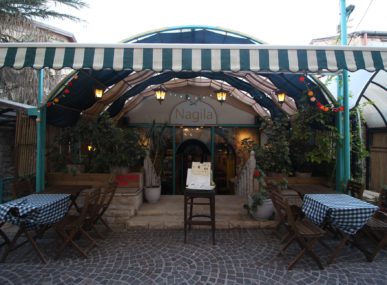“It can help families reduce food expenses, contribute to reducing reliance on conventional sources of energy, create income opportunities for the unemployed, while increasing food security and preserving the environment.”
Qena, Egypt
Sustainable Food and Agriculture
Ahmed Abdallah is an ambitious man with an ambitious goal: to eradicate poverty and cut down on food loss starting from Qena governorate in Egypt then expanding all over the world. He is the founder of ECO Food Dehydrators, a project aiming to reduce crop waste by providing farmers with innovative solar food dehydrators for their products.
Abdallah knows very well the challenges Egyptian farmers face. Alumni of Cairo University’s Faculty of Agriculture, his studies gave him a deep insight into the Egyptian farmers’ top problem: distribution.
Farmers are experiencing a severe post-harvest loss and quality deterioration due to the long transportation period, combined with high temperatures which make the delivery very costly. It turn out that throwing away part of their crops is eventually cheaper than paying the costs associated to the transport and preservation of the crops. This is a vicious circle that prevents local farmers to break the poverty loop and reach high-value markets. Besides, wasted crops have an enormous impact on the environment as their decomposition is responsible for large quantities of greenhouse gas emissions.
Abdallah is at the forefront of addressing these challenges that call for food security, economic growth, and the welfare of local farmers. He has found a genuine way to preserve crops and minimize its weight and volume for transportation. Food dehydration using mostly solar power is the new trend.
“Small farmers suffer from marketing problems due to high transport cost and low market value of their crops: thus they leave them in the fields for land fertilization, which constitutes a great loss of income and natural resources, and harms the environment.”
Food dehydrators rely on a flow of hot air to greatly reduce moisture in the products, thus inhibiting microbial activities and preventing them from spoiling food. The technique derives from sun drying, which helps preserve perishable foods like meat, vegetables, and fruits. But Abdallah’s dehydrators are based on a new technology and eco-design thinking approach, which allows uniform drying. Unlike existing industrial dehydrators, users of Golden Roof dehydrators can control the solar heat to avoid over drying. Users can also follow up dehydration process, avoiding unnecessary door opening, conserve energy and reducing dehydration time.
Validation Tests have already proved their high efficiency in all weather conditions. Furthermore, Abdallah‘s unique dehydrators are compact, portable, and tailored to the exact need of farmers. They provide a low-energy solution to increase the shelf-life of the crops, allowing them to be transported to far-away markets, for as low as 20 times the costs.
If made available on a large scale, as Abdallah intends, food dehydrators could well be the answer to the problem of food scarcity, and be part of the solution for a sustainable agriculture in Egypt. His project has already drawn the attention of the United Nations Development Programme (UNDP), and it has won awards in Austria, Belgium, and the UK. Abdallah’s slowly making his dream a reality, with the SwitchMed Program providing him with just the right tools to mount a sustainable business.
“I’d like to make a difference. I’ve started my eco-friendly business with a commitment to make a positive impact on the world, to make it a better place for all,” Abdallah adds.
This article was originally published on the SwitchMed website.
Learn more about ECO FOOD DEHYDRATOR through their Facebook.





